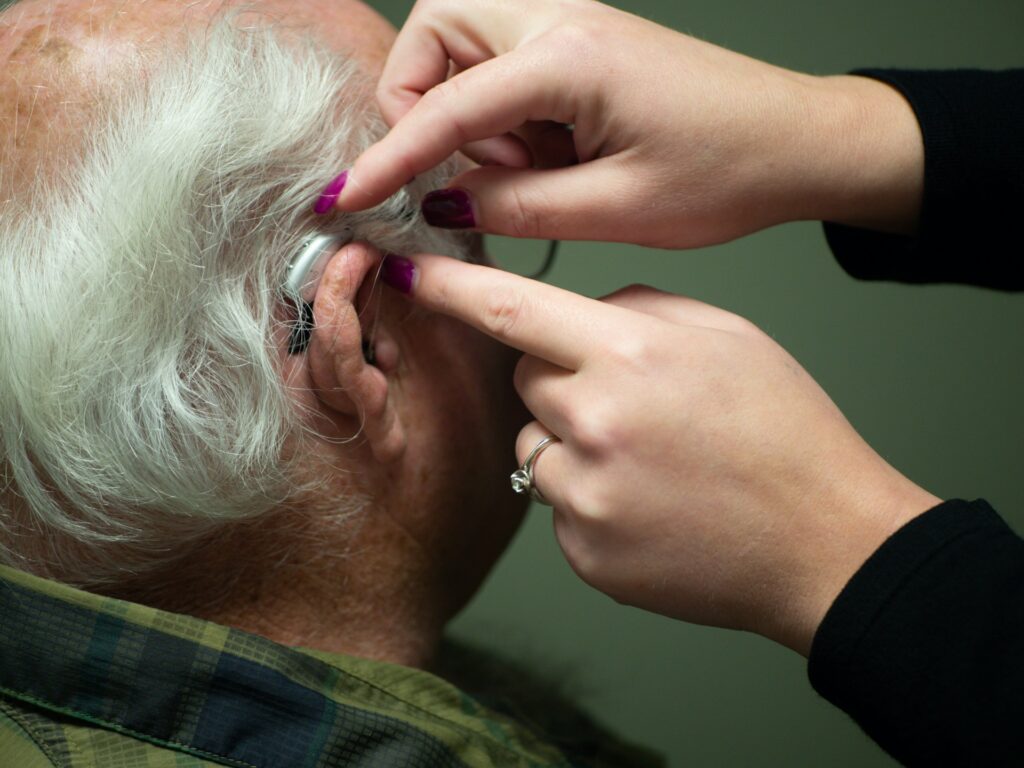Tinnitus, often described as a persistent ringing or buzzing in the ears, can be quite bothersome, particularly when trying to fall asleep. It can affect anyone, but when it becomes a constant presence, managing it properly becomes even more important. At night, when the world quietens down, the noise inside your ears might seem louder and trickier to ignore. This disruption in one’s sleeping pattern can lead to restless nights and groggy mornings.
Managing tinnitus effectively is key to achieving a good night’s rest. By taking a few steps to gently mask the noise and prepare for bed, you can significantly improve your ability to drift off and stay asleep. Whether it’s incorporating calming bedtime habits or altering your sleep environment, discovering what eases your tinnitus could transform your nights, helping you feel refreshed and revitalised when you wake up.
Create a Calming Bedtime Routine
A consistent nightly routine can often be the answer to improving sleep, especially when dealing with tinnitus. Establishing calming activities before sleep signals your brain that it’s time to unwind, which can help lessen the impact of the ringing or buzzing noises. Consistency here is more than just a good habit—it’s a step towards reclaiming your nights from tinnitus.
Here are a few activities to consider for your bedtime routine:
– Reading: Pick up a book that isn’t too exciting but engaging enough to hold your attention. This can distract your mind from focusing on the internal noise.
– Gentle Stretching or Yoga: Light stretches or gentle yoga poses can help relax your muscles and calm your mind, paving the way for a more restful sleep.
– Listening to Music or Podcasts: Choose something soothing to ease into sleep. Non-stimulating sound can help drown out the ringing, providing your mind with a gentler focal point.
Whichever activities you choose, ensure they’re relaxing and limit stimulating actions like screen time close to bed. This routine can become a comforting ritual, helping you navigate away from the buzzing to a place of peace and quiet. Building this routine doesn’t have to be complex or lengthy; even a few minutes dedicated to tranquillity can make a significant difference.
Use Sound Therapy
Sound therapy is one of the most practical approaches to managing tinnitus at night. The purpose of this therapy is to mask the noise in your ears by replacing it with more pleasant or neutral sounds. Sound therapy might not silence tinnitus completely, but it can make it much less prominent and easier to ignore.
White noise machines or apps are popular choices, offering a variety of sounds to choose from. You might find that the soft hum of a fan works wonders or that gentle nature sounds, like ocean waves or rainfall, help diminish the tinnitus and bring in a wave of calmness. Alternatively, some find that playing soft music or instrumental sounds can create a serene environment.
These sound therapies can provide a comforting background that takes your attention off the tinnitus, aiding relaxation and inviting sleep. It might take a bit of experimenting to find what works best, but discovering the right soundscape can make a significant difference in managing sleepless nights caused by tinnitus.
Optimise Your Sleep Environment
Creating a restful sleep environment is a crucial step in managing tinnitus. Begin by focusing on your immediate surroundings. Ensure your bedroom is a sanctuary of tranquillity, where you can escape the daily hustle. A few small adjustments can make a big difference in the quality of your sleep.
Consider these tips for a more comfortable sleep setup:
– Adjust the Lighting: Keep the room dim with blackout curtains or a sleep mask to block any intrusive light that might disrupt your slumber.
– Limit Noise Exposure: If ambient sounds from outside disturb your peace, consider using earplugs or sound-absorbing panels.
– Comfortable Bedding: Invest in a quality mattress and pillows that support your sleeping posture, making relaxation easier.
Besides these environmental tweaks, maintaining a consistent room temperature is also essential. A cooler room tends to promote more restful sleep, so set your thermostat to a comfortable level. Combine all these elements, and you create an environment where your mind can drift away, distracted from the persistent ringing in your ears.
Practice Relaxation Techniques
Relaxation techniques can play a pivotal role in easing the stress that often comes with tinnitus, thereby aiding better sleep. Dealing with persistent ear noise can be stressful, leading to tension and anxiety, which can exacerbate your symptoms. Fortunately, there are several methods to help alleviate this.
One effective method is deep breathing. Spend a few minutes focusing on slow, deep breaths: inhale deeply, hold briefly, and exhale slowly. This simple exercise can help calm your mind and body, making it easier to fall asleep. Another powerful technique is meditation. By focusing your mind away from tinnitus, meditation can cultivate peace and encourage a more restful state.
Here are some additional techniques to try:
– Progressive Muscle Relaxation: Gradually tense and then release each muscle group, starting from your toes up to your head, to relieve tension.
– Visual Imagery: Picture a serene place or scene, allowing your mind to escape to a safe mental haven.
Engaging in such practices regularly can build resilience against stress, enabling you to manage tinnitus better and improve your sleep.
When to Seek Professional Help
There comes a time when professional guidance becomes necessary. If tinnitus continues to disrupt your sleep despite employing several self-help strategies, reaching out to a specialist can be beneficial. Certain signs suggest the need for expert intervention, such as an increase in tinnitus intensity or if it starts affecting your daily activities and mental health.
Professionals can offer various forms of therapy tailored to your needs. Audiologists, for instance, can help in exploring sound therapy options further, or suggest hearing aids designed to mask tinnitus. There’s no reason to suffer in silence when professional support is available. With their help, you can find more personalised strategies to achieve the restful nights you deserve.
By incorporating these steps, you’ve got a solid foundation to tackle the challenge of sleeping better with tinnitus. Don’t overlook the value of professional assistance if needed, allowing for comprehensive care on your path to improved sleep.
If tinnitus is keeping you awake at night, consider seeking professional hearing services in Australia. At Country Hearing Care, our experts can guide you through personalised strategies tailored to ease your symptoms and enhance your sleep. Don’t let tinnitus disrupt your restful nights any longer—reach out to us today for support and advice.










